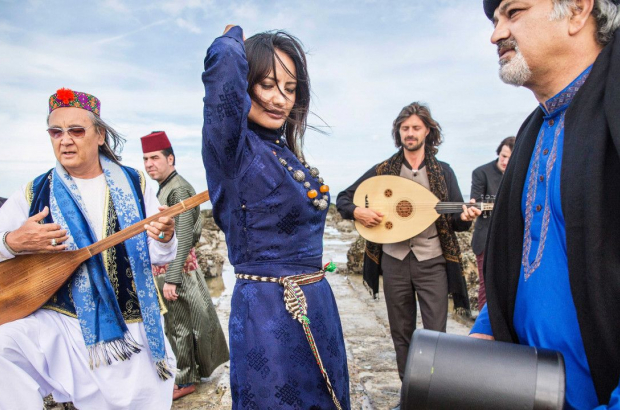- Daily & Weekly newsletters
- Buy & download The Bulletin
- Comment on our articles
Refugees for Refugees: Music is a universal language
“To communicate, sometimes we just need to play.” It’s a statement that is as literal as it is intuitive. Belgian percussionist Simon Leleux is a member of the band Refugees for Refugees, which is made up of practiced musicians from six different countries.
Releasing their second album this week with a concert at AB in Brussels, the 10 members of Refugees for Refugees hail from Syria, Tibet, Pakistan, Iraq, Afghanistan and Belgium. The majority are refugees who have been displaced by disasters or conflicts in their home countries.
They bring with them their musical talents and original styles of music. The band’s new album, Anima, is meant to represent their individual journeys and the beginning of their new lives in a foreign land.
Depending on their origins and the areas in Belgium where they first arrived, some of the refugees speak Dutch, while others speak French or English. Their common language, though, is music, says Leleux. “Music helps a lot.”
Solidarity
Leleux found his way into the band through his expertise in Middle Eastern percussion. Although he has picked up new styles since joining the band, his learning experience has gone deeper than that.
“I’m learning a lot of things about myself and about music, so it’s very, very rich,” he says. “Each one really has their own story, their own culture, their own music, and we have to blend everything together. And this is something very unique.”
For Asad Qizilbash, the band’s sarod player, the cultural mix lends to the message he hopes to convey to everyone who hears it: the importance of solidarity. “People should see how different musicians, different cultures, different styles of playing can be together,” says Qizilbash. “All of us are the same. We breathe the same air, we drink the same water, and the music is also the same to me. Music is the same seven notes that are used all over the world.”
Leleux agrees, mentioning how people will come up to the band after concerts to tell them how touched they were by their music, even if it was not a style they would typically listen to. “It’s like a huge synthesis,” he explains. “We try to take the essence of the music to create something that actually touches everyone.”
The band hopes that the project serves as an example of how society should manage the refugee crisis. They are 10 different people from various countries and cultures who are able to get up on stage and have a good time together.
Leleux: “It’s a very strong human experience. In my opinion, it goes further than music. There is something between us, and we use music to share it, but it’s something really strong that happens on stage.”
Album release concert: 16 February 20.00, Ancienne Belgique, Brussels. Tour thereafter, with stops including Antwerp and Ghent. See website for tour dates



















